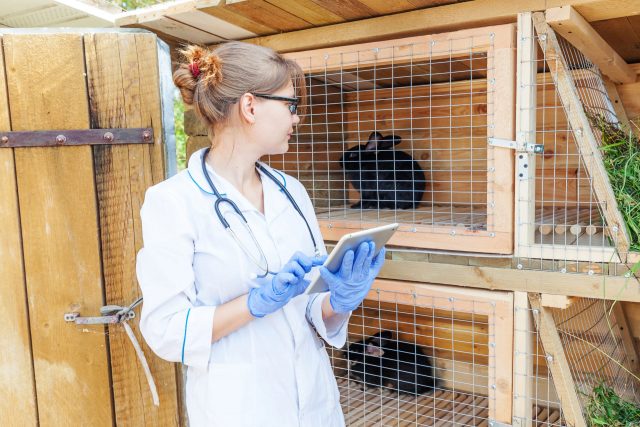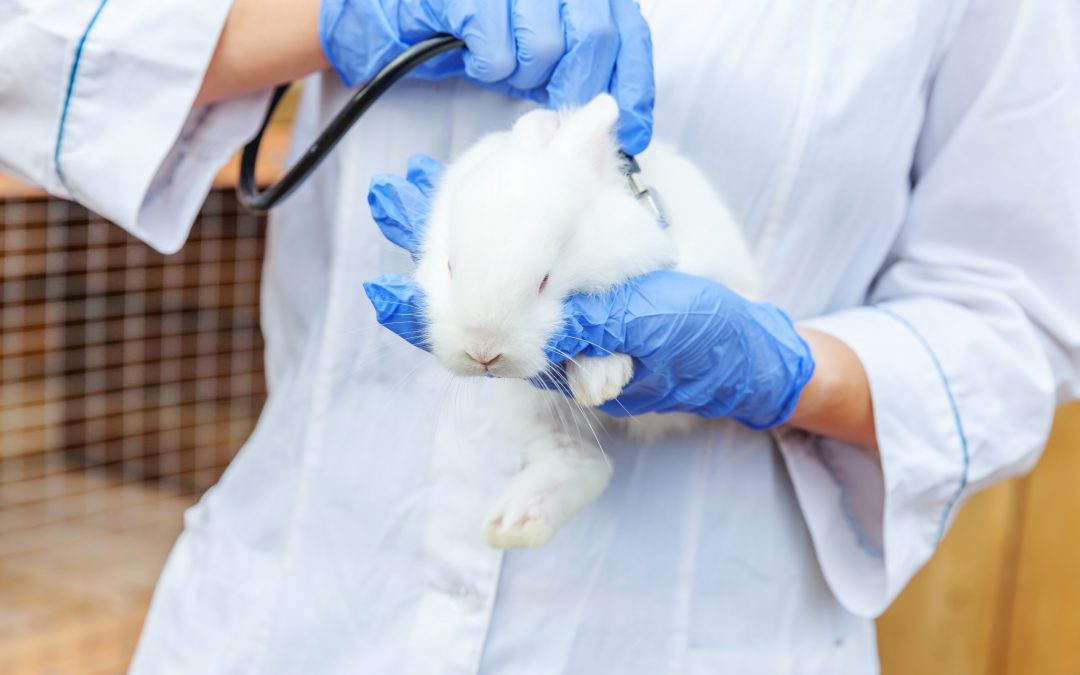A middle of the night emergency is a stressful experience for any pet owner, but for those who have rabbits, it’s a whole different ballgame. If there’s one thing a rabbit owner will tell you it would likely be “when you find a good vet, stick with him.”
While house rabbits have quickly become the third most popular pet – behind dogs and cats – in the United States and the United Kingdom, they’re still somewhat of an enigma to many, including veterinarians, who tend to specialize in dogs and cats.
Finding a qualified vet for your house rabbit is going to take work, but it will be well worth it in the end to have a vet who understands your rabbit and can properly care for her.
Start looking for a rabbit vet now. Don’t wait until your rabbit gets sick or experiences an emergency. Otherwise, you could be forced to go to a vet who knows very little about rabbits.
Start your search for a rabbit vet by asking other pet rabbit owners or your local animal shelter or humane society for referrals. The House Rabbit Society (www.rabbit.org) also has a list of recommended vets throughout the United States. (As a house rabbit owner, you’ll want to bookmark the House Rabbit Society as it’s an extremely valuable resource.)

Veterinarian checking health status of rabbits
A word of caution: Do not choose a vet based on where he is located. Sure, you might have a vet five minutes down the road who will see your rabbit, but is he really as rabbit savvy as the vet 35 minutes away? Never base your decision on the vet’s location.
When you have a list of vets to whom you’ve been referred, start calling them. The San Diego chapter of the House Rabbit Society advises that when you call, you ask the receptionist to what vet in town you should take your pet rabbit.
If she responds, “we care for rabbits,” make a note of it, and call the next veterinarian on your list.
Once you have several veterinarians on your list, schedule an appointment to briefly meet with each. Find out how many rabbits the prospective vets see in a year and whether a large majority of their clientele are rabbits. (The San Diego HRS suggests that a clientele of 10 percent rabbits is sufficient.)
Additionally, ask plenty of open-ended questions. For example, if you want to find out the particular vet’s view on how to treat G.I. Stasis, a common and potentially fatal illness in rabbits, ask the vet “How do you deal with G.I. Stasis” rather than “Do you prefer to treat rabbits in stasis with Reglan, or do you prefer to treat it with tummy massages and subcutaneous fluids?”
If the prospective vet is rabbit savvy, he’ll easily be able to answer the question.
In addition, ask the prospective veterinarians what type of oral antibiotics they generally give to house rabbits. If they answer “penicillin” (or any medication that ends in “illin”), you know to cross that vet off your list. While penicillin is deadly to rabbits in oral form, it can be taken safely in injected form.
Don’t forget to ask each veterinarian, “What happens if my rabbit has an emergency or gets sick after normal business hours?” Is there a vet on call, or does the vet’s office refer you to another vet’s office?
If so, will there be a rabbit savvy vet on call at the emergency vet’s office? Not having access to a bunny-savvy vet after hours can result in disaster, so it’s essential you find an ER vet who knows rabbits.
Of course, during your face-to-face appointment, ask about the normal price of an office visit and other common procedures. Do not make your decision on cost alone. Sometimes you have to pay more for peace of mind.
Visit the House Rabbit Society for even more detailed, open-ended questions you can ask prospective veterinarians.

